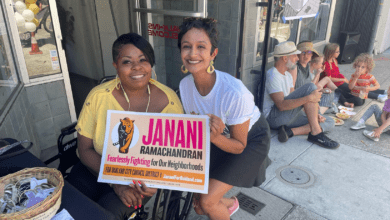Slovenia to End Ban on Same-Sex Marriage and Adoption
Good news for same-sex couples in Slovenia! A top court in the small European country has ordered its parliament to lift the ban on same-sex marriage and adoption.
The Constitutional Court judges voted 6-3 on both issues, ruling that the ban is unconstitutional. The law needs to be amended within six months.
The Slovenian Press Agency argued that discrimination against same-sex couples “cannot be justified with the traditional meaning of marriage as a union between a man and a woman, nor with special protection of family.”
Multiple countries in Central and Eastern Europe have constitutional bans on same-sex marriage. None have ever allowed them to marry before.
“The government of Estonia came the closest in 2016 by agreeing to recognize same-sex unions created in other countries,” according to the ABC. “Croatia, the Czech Republic, Hungary and Montenegro have laws establishing same-sex civil partnerships.”
Slovenia’s move towards lawful equality for all sexual orientations came just weeks after a liberal national government replaced a right-wing conservative one.
While the court gave legislators six months to lift the ban, Luka Mesec, the Minister for Labor, Family, Social Affairs and Equal Opportunities, said it can be done within a week or two.
“The Constitutional Court has ordered us to do it, and we will do it with the greatest pleasure,” Mesec said.
Proving that the country can listen to its people, the court debated the issue after two same-sex couples complained they could not get married or adopt children.
Same-sex couples can commit to civil unions in the country, but it only involves some of the rights awarded to heterosexual relationships.
Same-sex couples have been allowed to adopt each other’s children, but now they are able to help give all children in the adoption system a loving family to call their own.
“[The decision] does not diminish the importance of traditional marriage as a union of a man and a woman, nor does it change conditions under which persons of the opposite sex marry,” the judges said. “All it means is that same-sex partners can now marry just like heterosexual partners can.”





